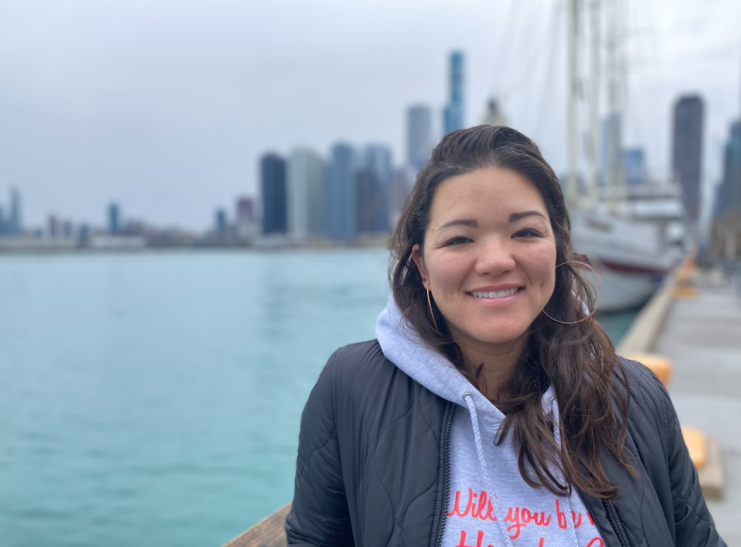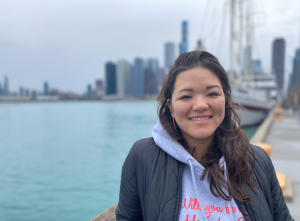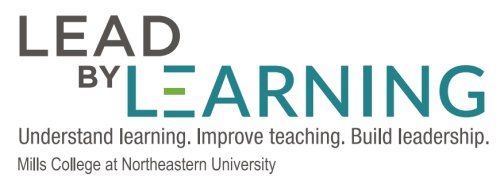
The Biggest Lessons Come From Your Students
Ms. Sato: “Now [at the end of the school year], how do you feel about math?”
I asked this question with a little trepidation to one of my most challenging students in the last weeks of school. Why the trepidation? This year was not an easy one and was full of ups and downs. At the beginning of the year, when I started this inquiry process with the Oakland Unified School District ELLMA office elementary inquiry group, I had a clear idea of how it would go and how the school year would look. Long story short…it did not go how I thought it would, leading me to learn many lessons from my focal students.
At the beginning of the school year, we were doing math talks and turn and talks. I love this routine because not only does it make students explain their thought process on how they were able to solve a problem but it also shows them that there is always more than one way to solve a problem.
We focused and collected data on a few focal students throughout the inquiry process. It was through this focal student study that my learning emerged.
First, I assumed that the verbal part would be easy and the math content would be challenging. But what I noticed is that my focal student and many of my students didn’t have the language or the structure to explain their thinking. They were jumping all over the place, explaining the answer and then how they started to solve the problem and missed some steps in the middle. It was not the math they were struggling with but the language as well.
This led me to my inquiry goal for the year: students to be able to explain their thinking process, step-by-step, for how to solve a problem in math. I wanted my students to be able to use transition language to explain their thinking such as first, second, next and last.
In October and November, we were well on our way. We made anchor charts with transition words, had them in our math journals and practiced the language in our math talks. At this point in the inquiry process, I was feeling confident and started thinking about how I could build on my work.
I decided to sit down with my student and listen to her explain her math. As I listened, my focal student would say things like “I plused it together.” I realized my student needed help with vocabulary to help her sequencing skills.
Then a challenge emerged. The progress and confidence that we built in the inquiry process came to a halt and I was reminded that life happens. One of my focal students had some problems at home which made her act out in class and miss multiple days of school, my other focal student moved back to Yemen, and other students were illustrating behavior challenges. Meanwhile, I was becoming increasingly stressed and overwhelmed. And, Oakland Unified School District had the possibility of a strike looming in the future (we ended up going on strike for eight school days in spring 2023).
With the increased anxiety in the classroom, my next steps were to pivot to work on community building like it was the beginning of the school year. We needed a reset and I needed to meet the students where they were at so that we could get back to working together and talking about math.
So when I asked my focal student at the end of the year how she felt about math, even after all of the ups and down, her answer was:
Focal Student: “Awesome! It was really good and I love math!”
She went on to tell me how she learned a lot this year and loved doing the different things like iReady Math, multiplication practice, and working with the manipulatives. As I listened to her answer, she reminded me of an important lesson: give yourself grace and to look at your successes instead of the failures.
The year was a roller coaster. I was happy with the progress that my students made, but wish I had done more. Thinking ahead to the next school year, I want to try a GLAD vocabulary chart and create a math word wall with pictures and definitions in different languages. Being able to participate in an inquiry process elevated my teaching. I found myself looking forward to the feedback from my colleagues. The year was far from perfect but we had many successes. I’m looking forward to the 2023-2024 school year to apply the 4 lessons I learned from my students:
- Teaching language matters to amplify students’ understanding of content
- Building vocabulary is key to supporting student explanation
- Life Happens and oftentimes it doesn’t go as planned; it is important to always meet students where they are at
- Give yourself grace as an educator. Make sure to look at your successes and learn from them, and not focus too much on your “failures.”
 Marta Sato has been teaching for 9 years (8 of those years in Oakland)! After being a swim coach for many years, Marta decided to take her love of teaching into the classroom. She got her BA from UC Santa Cruz (go Banana Slugs!) and her teaching credential from Sonoma State. Marta believes that all students should see themselves in the books they read, in the curriculum and in the classroom when learning. She strives to make her classroom welcoming and a safe place for students to be themselves and learn. When Marta is not in the classroom she likes to read, hike, do photography, cook and is currently trying to teach herself how to crochet.
Marta Sato has been teaching for 9 years (8 of those years in Oakland)! After being a swim coach for many years, Marta decided to take her love of teaching into the classroom. She got her BA from UC Santa Cruz (go Banana Slugs!) and her teaching credential from Sonoma State. Marta believes that all students should see themselves in the books they read, in the curriculum and in the classroom when learning. She strives to make her classroom welcoming and a safe place for students to be themselves and learn. When Marta is not in the classroom she likes to read, hike, do photography, cook and is currently trying to teach herself how to crochet.
